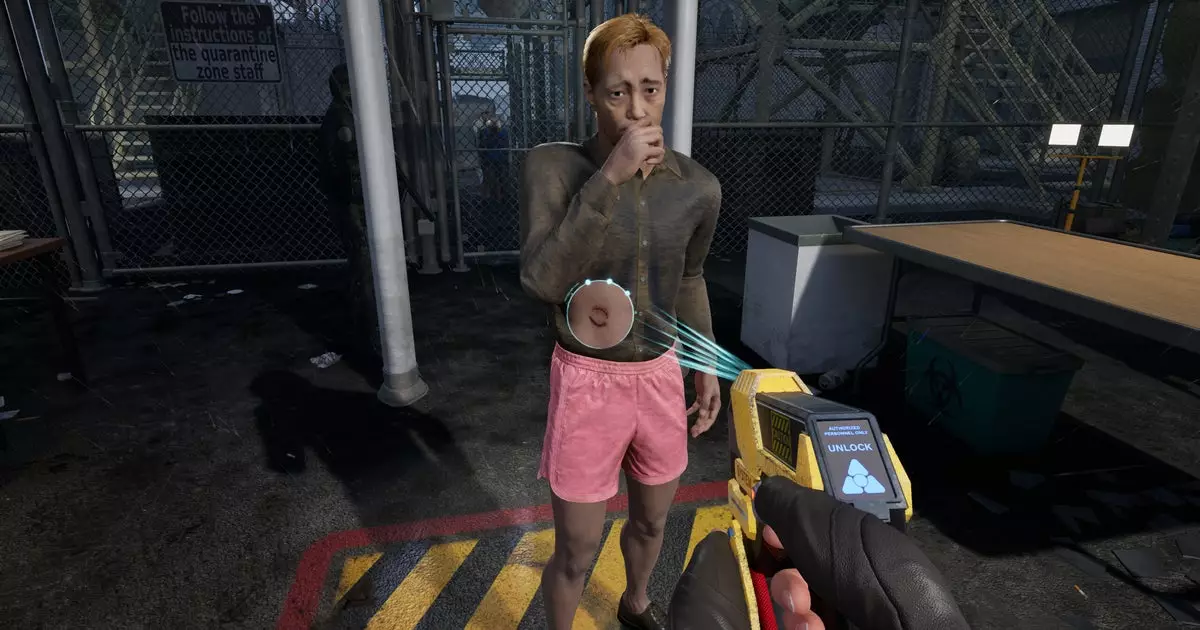Survival games have often prided themselves on thrill, chaos, and visceral action, but few truly challenge our moral compass as effectively as titles that embroil us in the nuanced decision-making of ethically complex scenarios. “Quarantine Zone: The Last Check” exemplifies this by thrusting players into a dystopian front line where every choice feels like a moral test. The game’s core mechanic—inspecting refugees for signs of infection—serves as a microcosm of the broader human condition: how do we determine who is innocent and who is culpable, especially when the stakes involve life, death, and societal disintegration?
Unlike traditional zombie thrillers that focus solely on combating the undead, this game elevates the experience into a tense balancing act. Players must navigate limited resources, interpret ambiguous symptoms, and juggle the immediate safety of the checkpoint against a deeper moral responsibility. It’s not just about identifying threats but understanding the humanity behind each individual. The game challenges us to question our own impulse to judge superficially, reminding us that appearances are often deceiving, and moral clarity is rarely black and white.
Complexity in Every Decision
What makes “Quarantine Zone” particularly compelling is its embrace of moral ambiguity. You are cast as a figure of authority tasked with making split-second judgments—quarantining the seemingly sick, letting the healthy pass, or executing suspected carriers. The tools at your disposal—UV flashlights, temperature probes, and document scanners—serve as metaphors for modern surveillance and policing, raising questions about due process and the ethics of suspicion.
This is not a simplistic binary. Discovering a groaning woman with indigestion juxtaposes sharply against a scenario where a dismembered arm bogs down your decision. The game refuses to offer trivial resolutions; instead, it immerses players in a relentless atmosphere where every choice compounds into larger consequences. This mechanic promotes critical reflection on human judgment—how much do we rely on visual cues versus evidence? And how often are these cues misleading?
By incorporating resource management and base defense elements, the game emphasizes that morality cannot be divorced from pragmatism. Resources are scarce, threats are real, and trust is fragile. Decisions to admit, quarantine, or eliminate individuals are not only moral dilemmas but survival strategies in a brutal world. The game smartly illustrates that morality in chaos often involves sacrificing warmth and compassion for cold practicality, yet the game’s design encourages players to consider whether practicality should always override empathy.
The Power of Narrative and Social Commentary
Beyond its mechanics, “Quarantine Zone” inadvertently prompts reflection on real-world issues—border politics, immigration, and the ethics of authority—under the guise of a dystopian scenario. It pushes players to confront uncomfortable truths about how society discerns threat and safety. However, the game also walks a fine line; one could argue it leans toward a sensational depiction of apocalyptic paranoia rather than a nuanced critique.
Interestingly, the title hints at a deliberate tension between survival and morality, signaling that the game’s true power lies in its ability to evoke emotional responses rather than pure gameplay satisfaction. When players grow attached to their characters’ choices, they become emotionally invested in questions of justice and compassion in times of crisis. This is where the game’s potential for social commentary shines brightest—prompting players to consider whether their decisions would hold up under the weight of real-world moral scrutiny.
Contrarily, some might critique the game for relying on familiar horror tropes or for sensationalizing the chaos rather than offering deeper insights. Nonetheless, its core achievement is forcing players to reflect inward—to ask how they would act when society’s infrastructure collapses and moral absolutes blur. “Quarantine Zone” demonstrates that survival is not solely about avoiding zombies but about navigating the tangled web of human ethics that define our very nature.
The Unique Role of Humor and Humanity
Amid the grim tone, the game’s humorous hypotheticals—like distinguishing Buster Keaton from Barney the Dinosaur—offer a playful reprieve. These musings serve as a reminder that even in the bleakest circumstances, human humor persists. They underscore the importance of empathy, imagination, and the recognition of the absurdity inherent in chaos.
Playing with such imaginative scenarios allows players to explore morality in a lighter context, hinting that a dash of humor can be a vital survival tool for the soul. This blend of seriousness and levity enriches the experience, asserting that our humanity—flawed, humorous, and complex—is ultimately what defines us, even when the world appears to be on the brink of collapse.
“Quarantine Zone: The Last Check” is more than a game about zombie outbreaks; it is a mirror held up to examine how we face moral dilemmas when the veneer of civilization erodes. Its success lies in transforming a survival mechanic into a profound commentary on judgment, empathy, and resilience. It challenges players not just to survive, but to reflect on what kind of humanity they choose to embody when faced with the apocalypse.

